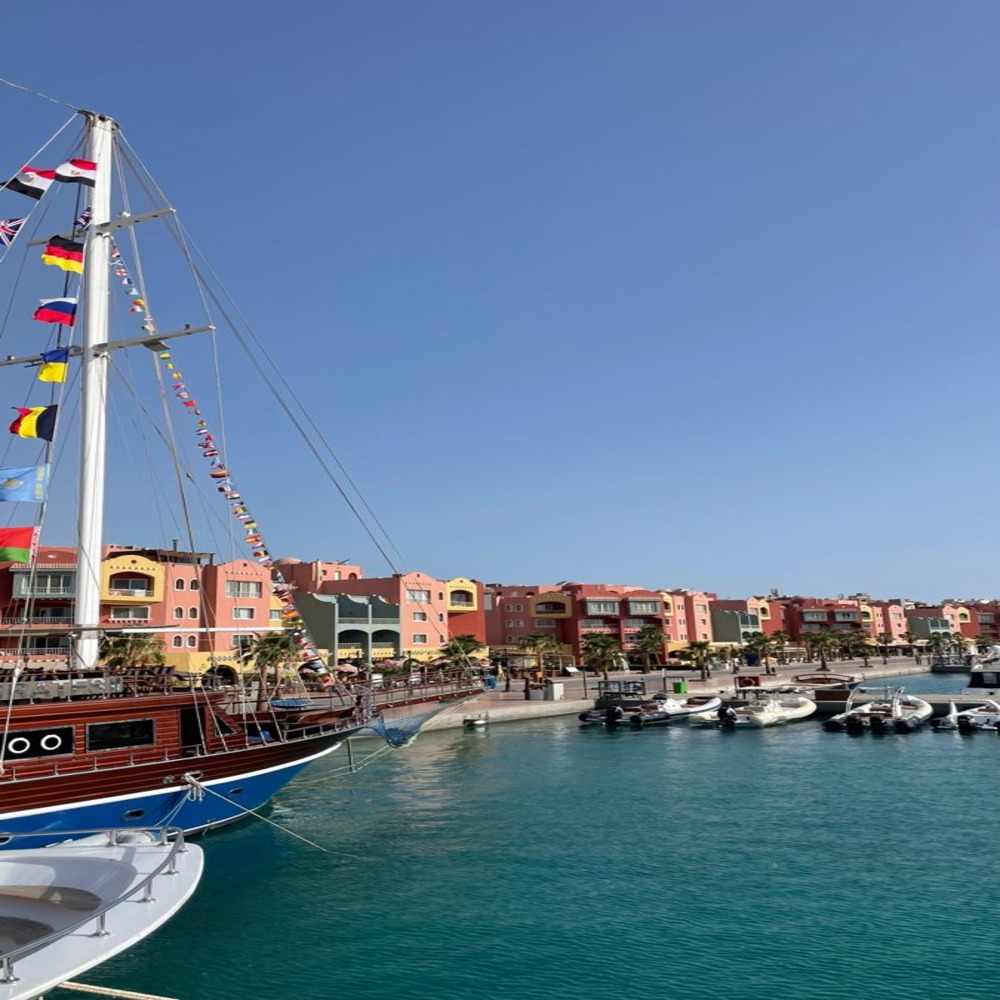Hurghada’s Role in Egypt’s Vision 2030 Development Plan
Egypt’s Vision 2030 Development Plan aims to elevate the nation as a prominent economic powerhouse in the Middle East, promoting sustainable development and diversification. A significant aspect of this vision is the transformation of Egypt’s coastal cities into globally competitive tourist and economic hubs. Hurghada, known for its picturesque coastline along the Red Sea, is a primary focus within this initiative, with ongoing investments in infrastructure, tourism, and sustainable development projects.
1. Tourism Development as a Key Driver
Tourism is an essential pillar of Egypt’s Vision 2030, and Hurghada plays a leading role in expanding this sector. As one of Egypt’s top tourist destinations, Hurghada attracts millions of visitors annually, thanks to its coral reefs, luxury resorts, and diverse leisure activities. Vision 2030 aims to further enhance Hurghada’s appeal by investing in the tourism sector, improving existing infrastructure, and developing new attractions.
The government and private sectors are actively collaborating to enhance the quality and accessibility of Hurghada’s attractions. Efforts include upgrading airports, expanding road networks, and developing eco-friendly accommodations that align with Egypt’s green tourism initiatives. These developments aim to position Hurghada as a top-tier destination in the region, contributing significantly to Egypt’s GDP.
2. Real Estate and Infrastructure Growth
To support the surge in tourism and population, Hurghada is witnessing a boom in real estate and infrastructure projects. The construction of residential complexes, commercial spaces, and international-standard resorts is aligning with Egypt’s Vision 2030 goals to foster urban expansion and investment in secondary cities.
The real estate sector in Hurghada is strategically positioned to attract both local and foreign investors looking to capitalize on the city’s booming tourism industry. Developers are building high-quality residences and holiday homes, anticipating growing demand from individuals and businesses alike. This expansion aligns with the larger vision of developing Egypt’s secondary cities into viable economic centers.
3. Environmental Sustainability and Green Initiatives
Environmental sustainability is a core value in Egypt’s Vision 2030, and Hurghada is leading the way in eco-friendly tourism practices. The Red Sea’s marine biodiversity is a vital resource for Hurghada’s tourism industry, and Vision 2030 includes measures to protect and preserve these ecosystems. Investments in renewable energy, waste management, and water conservation systems are central to making Hurghada a model for sustainable development.
Hurghada’s hotels and resorts are increasingly adopting green certifications, with initiatives to reduce carbon footprints and promote sustainable practices. This aligns with Egypt’s national goal of reducing greenhouse gas emissions and promoting green infrastructure in key cities.
4. Job Creation and Economic Growth
The developments in Hurghada are also driving employment opportunities and economic growth, contributing to Vision 2030’s goal of reducing unemployment and poverty levels. The expansion in tourism, real estate, and infrastructure has generated a wide range of jobs in construction, hospitality, retail, and other industries, benefiting local communities and enhancing the quality of life for residents.
Hurghada’s growing economy attracts skilled labor from across the country, and specialized training programs are emerging to equip locals with the skills necessary to meet the demands of these new jobs. This economic upliftment is central to Vision 2030’s broader social development objectives.
5. Educational and Cultural Development
In alignment with Vision 2030, Hurghada is also focusing on educational and cultural advancements to develop its human resources. The establishment of new educational institutions and vocational training centers in Hurghada aims to create a skilled workforce to support the growing economic sectors in the city. The government is promoting cultural heritage sites and events that showcase Hurghada’s history and traditions, further enriching the city’s tourism appeal.
Conclusion
Hurghada’s development aligns seamlessly with Egypt’s Vision 2030 goals, positioning the city as a model for sustainable tourism and economic growth. By leveraging its natural beauty, fostering real estate investment, and committing to environmental sustainability, Hurghada is set to play a crucial role in Egypt’s ambitious development plan. Through these initiatives, Hurghada not only strengthens Egypt’s economy but also enhances its standing as a global tourism destination, making it a vital contributor to the country’s future.




